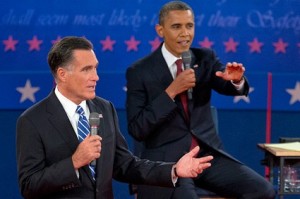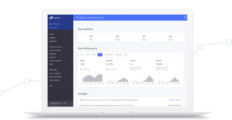 The 2012 election on November 6 will be decided on Obama and Romney’s tax policy platform for many reasons. Primary, of course, is the fact that individual income taxes and payroll taxes account for more than 80% of all federal revenues. To the individual consumer, the outcome of this tax battle will determine how much disposable income you’ll be left with after you’ve paid your dues to the government. What do Romney and Obama propose to do?
The 2012 election on November 6 will be decided on Obama and Romney’s tax policy platform for many reasons. Primary, of course, is the fact that individual income taxes and payroll taxes account for more than 80% of all federal revenues. To the individual consumer, the outcome of this tax battle will determine how much disposable income you’ll be left with after you’ve paid your dues to the government. What do Romney and Obama propose to do?
The current rates for the various income brackets stand at 10%, 15%, 25%, 33%, and 35%. These rates are a legacy of Bush-era tax cuts and are set to expire at the end of the year and higher rates will take their place. Those who file individual returns for wage and business income will be affected by this increase.
Romney proposes to reduce each of the Bush-era income tax rates by 20%. The top rate would fall to 28% and the bottom rate to 8%. Romney would also like to repeal the new health reform law (popularly known as Obamacare). That would mean a repeal of the 0.9 percentage point increase in the Medicare tax on high-income households called for under that law.
Obama proposes to make the Bush-era tax rates permanent for everyone except those making more than $200,000 ($250,000 if married). Obama would preserve the Bush tax rates at the low end (10%, 15% and 25%) but raise the top two rates to 36% and 39.6%.
The main criticism behind Romney’s proposal is that it would decrease federal tax revenues by $360 billion in 2015, and would actually raise the incomes of higher-earning households but decrease the incomes of those earning $30,000 or less. Romney intends to make that deficit up by eliminating loopholes in the system such as exemptions for donations to charitable institutions, payments for mortgage interest rates and employee-provided health insurance. The criticism on Obama’s plan, on the other hand, is that it’s more of the same and doesn’t really represent any major reforms to a system that’s viewed by many as created for a different era and hasn’t kept up with the times. There are those who calculate that by keeping the Bush-era tax cuts the federal government stands to lose $1 trillion in the next decade.
The debate has been fueled by Romney’s famous 47% fundraising speech, interpreted by many as an indictment that those who do make enough to pay federal income taxes “…are dependent upon government, who believe that they are victims, who believe that government has a responsibility to care for them, who believe that they are entitled to health care, to food, to housing… should take personal responsibility and care for their lives.” This was roundly criticized by many as being insensitive to what’s happening in the real world.
Amid the clamor are voices presenting a different perspective on the issue. At the party-agnostic Tax Policy Center, many believe that taxes do not always drive the economy. Sometimes it’s the other way around. “Many people’s taxes fell because they lost their jobs or worked for lower wages. For those at the top, the collapsing stock market wiped out trillions of dollars in capital gains.”
Finally, Ted Hanauer and his controversial speech on why it’s dead-wrong to think that reducing taxes on the rich so they’ll have more money to invest and therefore create jobs. “In a capitalist economy, the true job creators are middle-class consumers. And taxing the rich to make investments will make the middle-class grow and thrive. It’s the single shrewdest thing we can do for the middle-class, for the poor, and for the rich.”
Tax policy is the one issue where analysts see the clearest divide between Obama and Romney. Who speaks with your voice? Who holds the key to your American Dream?























Leave a comment!